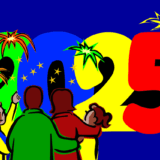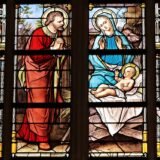Halloween Events Around the World: A Tapestry of Different Histories and Cultural Beliefs
Halloween Events Around the World
Halloween is a widely celebrated holiday that has evolved over time and taken on different forms in various countries. While it is commonly associated with costumes, candy, and trick-or-treating, the origins and traditions of Halloween can vary greatly depending on the cultural beliefs and historical backgrounds of each country. In this article, we will explore some of the unique Halloween events from around the world and delve into how Christian beliefs intertwined with pagan customs.
Halloween in the United States
In the United States, Halloween is a highly anticipated event celebrated on the 31st of October. It is a time when children dress up in costumes and go door-to-door, shouting “trick or treat” in the hopes of receiving candy. Many neighborhoods decorate their houses with spooky decorations and carve pumpkins into jack-o’-lanterns.
The origins of Halloween in the United States can be traced back to Celtic traditions brought over by Irish and Scottish immigrants. The holiday was initially known as Samhain, a festival marking the end of the harvest season and the beginning of winter. Over time, it merged with other cultural influences and evolved into the modern-day Halloween we know today.
Halloween in Mexico: Dia de los Muertos
In Mexico, Halloween is celebrated alongside the traditional holiday known as Dia de los Muertos, or Day of the Dead. This vibrant and colorful celebration honors deceased loved ones and is a time for families to come together and remember those who have passed away.
During Dia de los Muertos, families create elaborate altars called ofrendas, adorned with photographs, favorite foods, and mementos of the deceased. They also visit cemeteries to clean and decorate the graves, often leaving marigolds, candles, and sugar skulls as offerings.
Halloween in Ireland: The Birthplace of Samhain
Ireland is often considered the birthplace of Halloween, as the holiday originated from the ancient Celtic festival of Samhain. Samhain marked the end of the harvest season and the beginning of winter, a time when the boundary between the living and the dead was believed to be blurred.
Traditionally, people would light bonfires and wear costumes to ward off roaming spirits. They also believed that during Samhain, the spirits of their ancestors would visit their homes, so they would set places at the dinner table for them.
Halloween in Italy: All Saints’ Day
In Italy, Halloween coincides with All Saints’ Day, or Ognissanti, a public holiday dedicated to honoring all the saints. It is a time for Italians to visit the graves of their loved ones, bringing flowers and lighting candles as a sign of remembrance.
While Halloween itself is not widely celebrated in Italy, there are some regions, such as Lombardy and Veneto, where children dress up in costumes and go trick-or-treating. However, the focus is primarily on All Saints’ Day and paying respects to the deceased.
Christian Beliefs and the Evolution of Halloween
As Christianity spread throughout Europe, it encountered various pagan traditions and customs. In an effort to assimilate these practices into the Christian faith, the Church often incorporated them into existing religious holidays.
For example, the festival of Samhain was eventually merged with All Saints’ Day, which falls on November 1st. This allowed the Church to provide a Christian alternative to the pagan festivities, while still acknowledging the importance of honoring the dead.
Over time, the traditions of Samhain and All Saints’ Day blended together, giving rise to the modern-day Halloween celebrations we see today. The costumes and disguises worn during Samhain became associated with Halloween, while the Christian influence brought about the practice of honoring saints and deceased loved ones.
Conclusion
Halloween is a holiday that has transcended borders and taken on different meanings and traditions around the world. From the lively celebrations of Dia de los Muertos in Mexico to the ancient roots of Samhain in Ireland, each country has its own unique way of commemorating the holiday.
While the origins of Halloween may have pagan roots, the influence of Christian beliefs and practices has shaped the holiday into what it is today. It is a time to celebrate, remember, and honor both the living and the dead.














